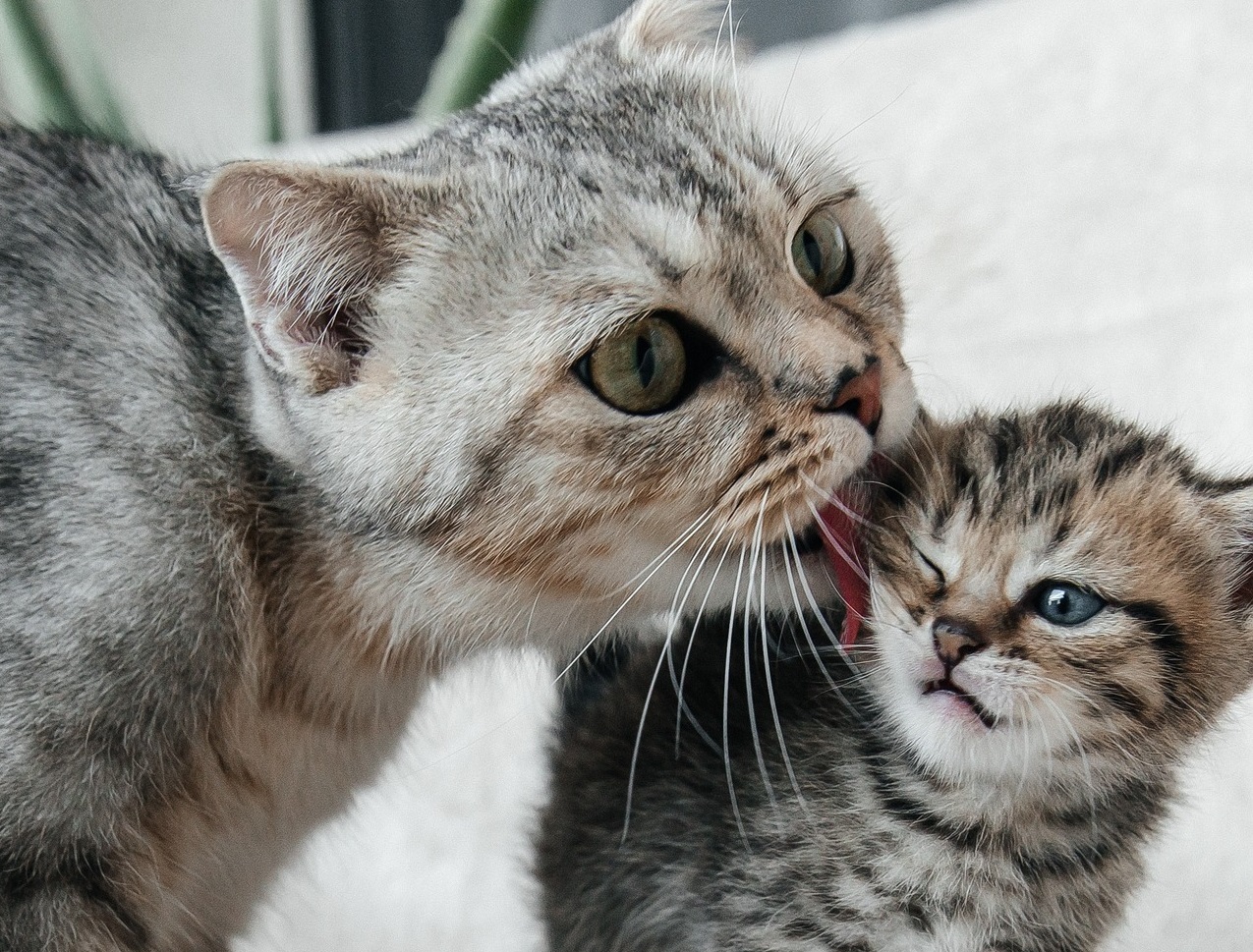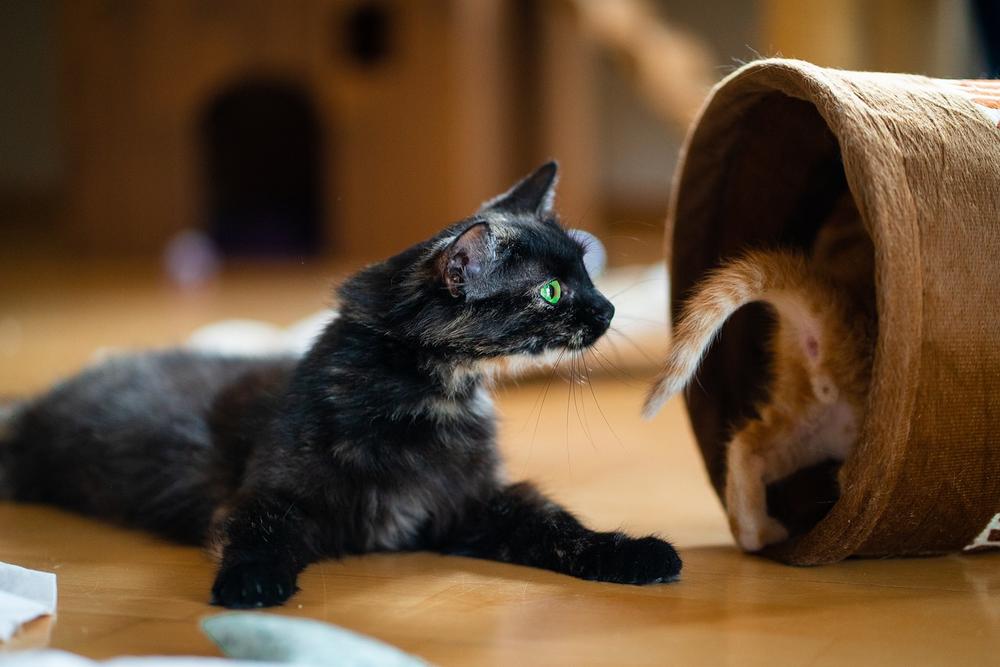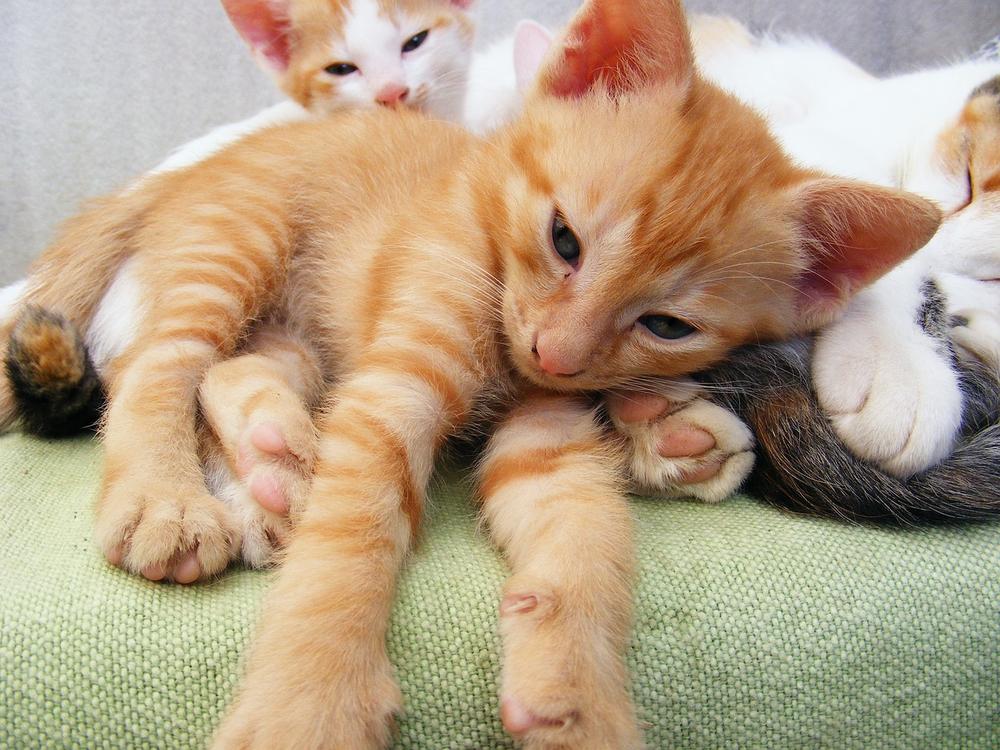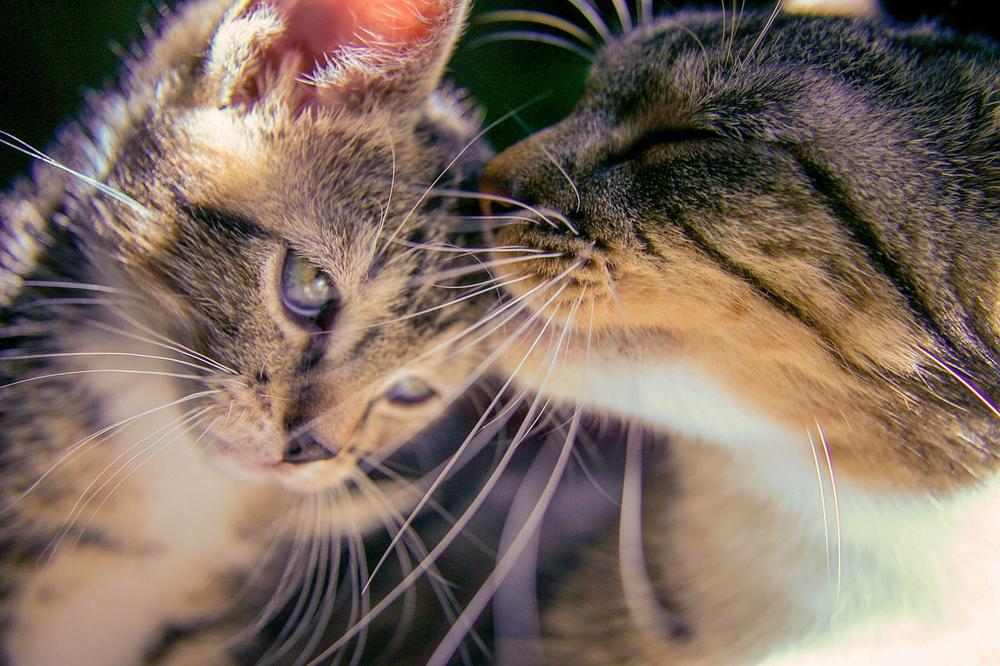Why Is Your Mother Cat Biting Her Kitten's Neck?

Do you feel that?
The sharp pang of worry in the pit of your stomach as you watch the mother cat sink her teeth into her kittens' delicate necks.
It's like a gut-wrenching horror movie, playing out right in front of you.
You can't help but wonder, is this normal?
Should you intervene?
Don't worry, I've got you covered. 😱
In this blog post, we'll delve into the fascinating world of mother cat behavior and explore whether this biting is a cause for concern or just a purrfectly natural occurrence.
So, let's get to the bottom of this, shall we?
Understanding Mother Cat Behavior: Why is She Biting Her Kittens' Neck?
Mother cats bite their kittens' necks to establish boundaries, teach self-defense skills, and foster a sense of security. This behavior also encourages nursing, aids in urination and defecation, and strengthens the mother-kitten bond. Understanding these reasons helps ensure proper care for your feline companions.
Biting is a way for mother cats to communicate with their kittens, showing them who's in charge or simply being playful.
It's completely normal and part of their instinctual behavior.
When the mother cat bites her kittens, she is teaching them boundaries and letting them know if they are being too rough or need stimulation.
This helps create a sense of security, comfort, and protection.
It also encourages nursing, which is crucial for their growth.

Did you know that biting can also help newborn kittens urinate and defecate?
Yes, it's true!
The mother cat uses gentle biting to assist them since they can't do it on their own during their first few weeks of life.
There are several reasons why the mother cat engages in this behavior. She might be trying to teach her kittens self-defense skills, establish her authority, or simply bond and play with them. Remember, the kittens rely on their mother for warmth, food, and protection, so this biting behavior is an important part of their learning process.
Understanding these reasons can help you take better care of your adorable feline companions and meet their needs.
So keep observing and learning from your mother cat – she truly knows best!
Is it Normal for a Mother Cat to Bite Her Kittens' Neck?
Mother cats biting their kittens' necks is a normal and natural behavior, not immediately considered abnormal unless it becomes excessively aggressive or harmful.

This behavior serves as disciplinary action from the mother cat to her kittens, teaching them vital skills for survival.
During moments of stress or hunger, these bites occur, mostly non-severe, aimed at teaching hunting and self-defense.
As long as this biting behavior stays within reasonable bounds, it is seen as an essential element of a mother cat's parenting.
How to Determine if Mother Cat's Behavior is Harmful to Kittens
When observing a mother cat's behavior towards her kittens, you must determine if it is potentially harmful.
Here are some practical tips to help you assess the situation:
- Watch for increasing aggression: If the mother cat becomes increasingly aggressive towards her kittens, it may be a sign of harmful behavior that needs attention.
- Look for injuries on the kittens: Physical harm such as bite marks or scratches on the kittens can indicate problematic behavior from the mother cat.
- Pay attention to excessive crying: Kittens crying excessively could be a result of harmful behavior or discomfort caused by the mother cat.
- Consider health issues and environmental factors: Health problems and stress-inducing surroundings can contribute to biting behavior from the mother cat, potentially harming her kittens.
To address and prevent harmful behavior, here are some useful measures:
- Provide safe spaces: Creating secure areas for the kittens away from the mother cat can minimize the chances of harm.
- Handle kittens gently: Avoid holding kittens by the neck, as this can trigger biting behavior from the mother cat.
- Use positive reinforcement and training: Reward desired behavior in the mother cat and train her to avoid biting. Professional behavioral advice might be needed to address this issue effectively.
Creating a safe and comfortable environment for both mother cat and kittens while giving them space and time is essential. With patience and understanding, biting behavior will likely subside over time. 🐾
To help you better understand your mother cat's behavior and address any concerns, I highly recommend checking out my guide on why female cats roll around after mating.
By delving into this topic, you will gain valuable insights that can contribute to a safer and more comfortable environment for both mother cat and kittens.
Don't miss the opportunity to discover the intriguing reasons behind this behavior: Why Do Female Cats Roll Around After Mating.
The Role of Maternal Aggression in Cat Behavior
Mother cats biting their kittens' necks might seem alarming to you, but it's actually completely normal behavior.
In fact, it's a natural part of how mother cats interact with their kittens.
But why do they do it?
Well, there are a few important reasons behind this behavior.
First of all, when a mother cat bites her kittens' necks, she is establishing dominance and discipline.
It sets boundaries and teaches the kittens what's acceptable in terms of social interaction with other cats. Basically, she's saying, "Hey, I'm in charge here."
On top of that, when a mother cat bites her kittens' necks, she's also creating a strong bond between herself and her little ones.
It's a way of communication that helps them build trust and understand their place within the family.
You could think of it as a secret handshake among feline families.
But the biting doesn't end there.
It serves other purposes too.
One of these purposes is releasing excess energy. Imagine having a bunch of energetic kittens running around - biting can help the mother cat release some of that built-up tension.
What's more, biting the kittens' necks allows the mother cat to mark her territory.
Oh, and let's not forget about the hunting skills.
By biting the necks of their kittens during play, mother cats are actually teaching them how to hunt.
Talk about multitasking!
Now, if you're concerned that your mother cat's biting behavior is becoming excessive, there are a few steps you can take.
Making sure the mother cat has appropriate nutrition is crucial since deficiencies in her diet can lead to increased aggression. Also, providing her with toys to play with instead of her kittens can help reduce rough behavior.
Please keep in mind that growling is another way mother cats assert dominance or encourage gentleness and respect in their offspring.
So if you hear some growling during these interactions, don't be alarmed - it's all part of the mother cat's grand plan.
Ultimately, biting and neck-biting might seem intense to you, but they play a significant role in shaping kittens' behavior.
It helps them learn survival skills, develop important abilities, and feel secure as they grow up.
So don't worry too much - your mother cat knows exactly what she's doing.
And now, let's delve into what to do if a mother cat's biting behavior becomes excessive or problematic.
Here's my advice:
Signs of Distress in Mother Cats: When to Be Concerned
If you see mother cats acting weird, do something about it.
Here's what you need to watch for:
- If the momma cat starts biting and scratching her kittens too much, that's not good.
- Look out for any injuries or bite marks on the kittens. That means there might be some aggression going on.
- Excessive growling and hissing could mean the momma cat feels stressed or threatened.
- When the kittens avoid their mother, it's a signal that something is wrong.
- Be careful if you notice the mother cat dragging or carrying her babies by the neck too forcefully because it can hurt them. 😟
Don't ignore these signs.
If any of these behaviors keep happening or get worse, go see a vet ASAP.
A professional can check if there's a medical problem and tell you how to deal with all that biting stuff.

Also, give the momma cat some time and space to calm down. It can really help.
Giving love and attention to mother cats and their little ones is super important for their well-being.
And finally, if you're still wondering about any peculiar behavior your mother cat might be exhibiting, like excessive licking or odd humping habits, let me assure you that I've got you covered.
Don't hesitate to check out my article Why Cat Hump Blanket for an in-depth understanding of why this happens and whether it's something to be concerned about.
Trust me, it's a fascinating read that will put your worries at ease and give you the knowledge you need to ensure your cat's well-being.
Mother Cat's Behavior: Implications and Considerations
- Mother cats biting their kittens' necks is a natural behavior for establishing dominance and discipline.
- Biting behavior benefits kittens by providing security, comfort, protection, and encouragement to nurse.
- Biting can stimulate urination and defecation in newborn kittens.
- Biting may serve to teach kittens how to defend themselves and establish dominance.
- Mother cats may bite their kittens during play, hunting, or to relieve anxiety/aggression.
- This behavior is normal and should not be a cause for concern.
- However, excessive or aggressive biting should be addressed by seeking veterinary care.
- Providing a safe and comfortable environment is important to prevent harm.
- Positive reinforcement and behavioral training can address biting behavior.
- Time, patience, and understanding are key as the biting behavior will likely stop over time.
And that wraps up today's article.
If you wish to read more of my useful articles, I recommend you check out some of these: Cat Hump Dog, Why Do Cats Wander Off for Days, Why Do Cats Lift Their Bum When You Pet Them, Can a Cat Ride in a Car Without a Carrier, and Do Kittens Bite When Teething
Talk soon,
-Sarah Davis